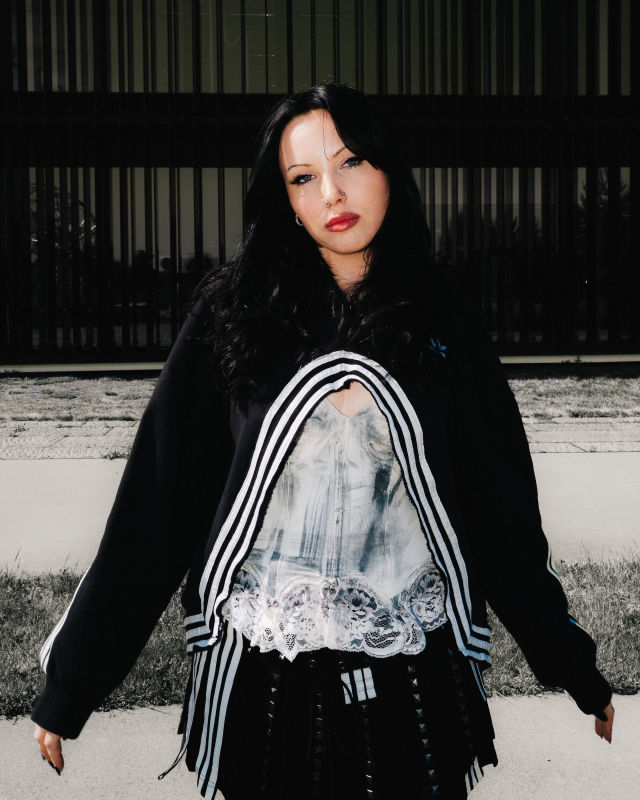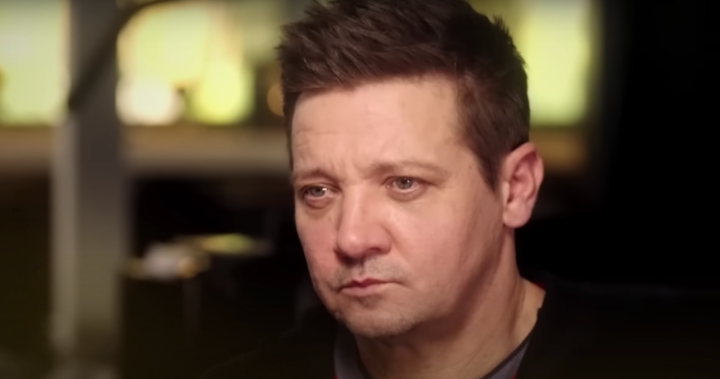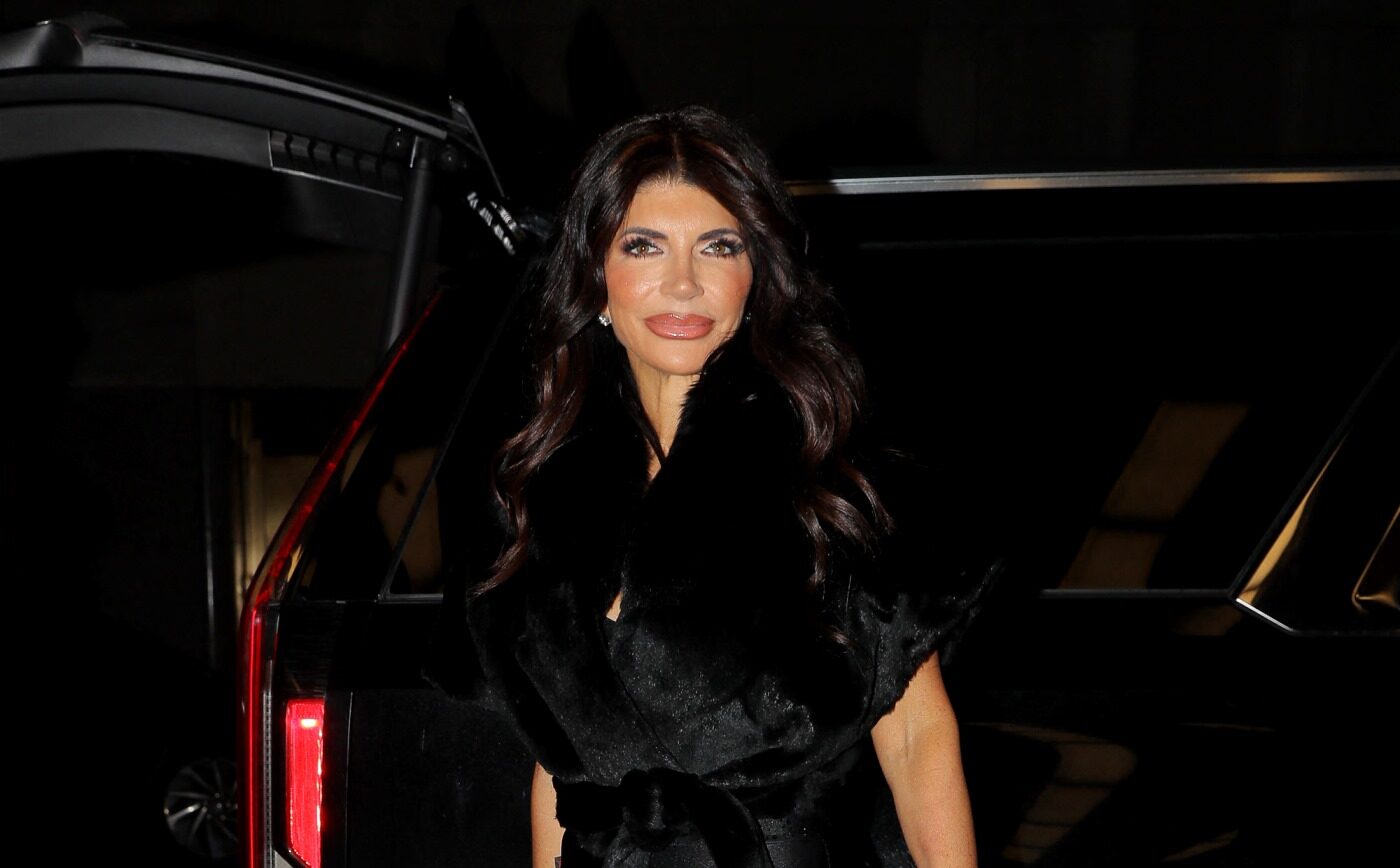La Luz appear in our Summer 2024 Issue with cover stars Wallows, Drain, Maya Hawke, the Linda Lindas, and Winnetka Bowling League. Head to the AP Shop to grab a copy.
When Shana Cleveland attended art school in Chicago throughout the early 2000s, she lived in a house that turned her world into a radiant glow of musical discovery. All of her roommates went to her college’s rival, but it was still a space where swapping songs and geeking out about them felt new and infinite. She found Love — the undersung heroes of LA’s kaleidoscopic revolution — who Cleveland calls “the cousin” to La Luz, the daydreamy psych-rock band she started in 2012. Then there was John Fahey, whose minimal acoustic fingerpicking remains a core memory of hearing exceptional guitar playing. It was around that time, when strains of the band started coming together, that she became mesmerized by surf rock, attempting to uncover all of its intricacies by ear.
“I worked really hard listening to records on vinyl and moving the needle back over and over again, trying to learn the riffs,” Cleveland reminisces from her home in Grass Valley, California, far removed from the whirling chaos of Los Angeles. Then she breaks into a laugh. “It’s so labor-intensive. I don’t know why I wasn’t just using my phone, but at that time, I remember being obsessed with that style of guitar playing, and it was a puzzle that I wanted to try to figure out.”
Read more: 25 best albums of 2024 so far
Those days are far away now, but it’s easy to hear how that sense of wonder has spilled into La Luz over the years. Buoyed by sweetly sung vocals that strike a balance between haunted and heavenly, they’ve transmitted a harmonic unease into each of their albums. As the years blurred, they continued to reach beyond their retro roots in favor of richer sounds and perspectives, but the quiet dread remained. News of the Universe, the group’s latest album and first on Sub Pop, erupts with the same transcendence, except the dread isn’t so subtle this time. Rather, the sky has split open, and the sun’s turned red, refracting the spiraling heaviness of Cleveland’s breast cancer diagnosis two years after giving birth to her son, Ozzy.
Cleveland still remembers those early weeks of her diagnosis — of carrying that agonizing, massive weight. “Man, it just felt like I had been sucked out of the world as I knew it and put in this place that was apart from everyone that I knew and loved,” she shares. “I remember looking at my partner, Will [Sprott], and my son — they were in the other room playing, and I just felt so separate.”
The uncertainty mounted. Months passed, the hardest part being not knowing how bad everything could turn, and the heaviness of the information continued to weigh on her. Once she got a doctor and a treatment plan, and ultimately steps to follow, she eventually came to a new understanding of her place in the world — to “live in love” perennially. “That kind of trauma of getting that diagnosis and then having to wait was almost unbearable,” Cleveland adds. “I don’t think I’ve gone back to the person that I was before that, and I don’t think that I want to.”
Given that Cleveland felt like a brand-new person, it only makes sense that La Luz needed to embrace a whole different direction. Part of the album’s magic comes from a lack of preparation before the band headed to the studio, intentionally adopting a looser approach than on past projects. They only gave themselves a few days to play together and figure out a flow — the rest would be determined on the clock. As a result, the solos are gnarlier, the experimentalism more abundant, and the arrangements not overthought.
On their last record, 2021’s La Luz, the band embraced a bevy of synthesizers that shot their sound into the future. Now those synths have only grown more massive and mutant, kicking off with a doomed, unrelenting percussive swirl on “Strange World.” The heavier reliance on electronics — dreamed up by longtime members Lena Simon and Alice Sandahl, who both make their final appearances on the LP — introduces a frantic, menacing yet surreally groovy energy that ripples with urgency but still sounds like La Luz. But if the synths embody the crushing despair, they’re offset by hopeful lyrics, building a slick tension that often dissolves into euphoria when Cleveland comes in with soaring guitar lines.


During “Always in Love,” the album’s center of gravity, Cleveland rips into a solo that sends the song into a fried trance that’s equally triumphant. “I can hear myself blasting through this trauma that I just experienced, and it feels so cathartic,” she says. It required a few takes, playing it differently each time, so when she heard the final, she had to puzzle out how to replicate it. “I still just geek out every time I hear it. I’m like, ‘Yes!’” she laughs, calling it her favorite moment on the record, which couldn’t have happened without the warm vulnerability within the recording space.
Only working with women across the entire project wasn’t an intentional decision, but it felt like kismet after coming out of such a brittle headspace. Teaming with Maryam Qudus of Spacemoth, who gelled with the band so much that she’s now a member, was like finding the missing piece, offering a similar carefree cool that made it clear they were operating on the same frequency. “I just didn’t think she would want to spend that much time with us, but I’m so happy it worked out that way,” Cleveland laughs.
Qudus felt a similar bond, admiring how open the La Luz bandleader was to collaboration. “Considering everything Shana had gone through right before coming into the studio, I had expected that she would be protective of the songs and that I would need to be more of a fly on the wall,” Qudus says of their partnership. “The opposite was true — I was given so much trust from the very first day we worked together, and that made me want to treat this record like it was my own. I think somehow with that intention, I manifested myself into being in the band.” Some of that trust extended into challenging the band to explore new approaches, like on “Dandelions.” During the second verse, the guitar cuts out and returns fuzzier in the chorus. Past producers have always suggested what could be added to the mix, but instead, Qudus was looking deeper at what they could take away.
The song is one of two on the record that are explicitly about Cleveland’s son. The other is “Blue Jay,” an acoustic ode to invincible, unconditional love. Motherhood has been a trip in its own right, allowing Cleveland to experience life with fresh eyes. “When you’re teaching somebody everything that there is to know about being a human in the world, you get to learn that stuff all over again, too,” she reflects. “That, to me, has just been such an education because I try to be intentional about what I show him, and I try to think about, ‘Is this the way it should be?’ before I tell him about the way that it is. It just is a total reevaluation of the world, and that’s been really rewarding to me.”
Nature, and living in a place surrounded by its sprawling beauty, has provided a similar enrichment. Cleveland and Sprott, who plays keyboards in Shannon and the Clams, are both constantly on the road and prefer to “nest” when they’re home, so living in Los Angeles no longer felt right. Instead, they retreated six hours north into rural California, where the land stretches so wide that they can’t see their neighbors. It’s allowed them to disconnect from their work and find peace of mind within the natural world, which, given that Cleveland describes herself as an introvert with dreams of being self-sufficient one day, makes her references to flowers, moths, and moon tides resonate all the more deeply.
In the fall, Cleveland will play the new songs onstage to hundreds of kindred spirits, and by this point, they’ll have taken on a life of their own. She’s even taking vocal lessons for the first time ever to prepare for the tour. Two of her longtime bandmates won’t be beside her, but when she looks back at the drumkit, Audrey Johnson will be tearing it up, and Qudus will bang against the keyboards while Lee Paige slings a low groove. It’s a lot of change — but also a lot of rebirth. Early on, Cleveland sings of disappearing underneath the weight of it all. Then she sees a flicker of hope blossom into an abundance. “One or two, the first ones to break through and now/Across the field, the poppies come again,” she coos. It’s a reminder that while there will always be seasons of uncertainty, the anguish cannot last. The light eventually cracks through.


















